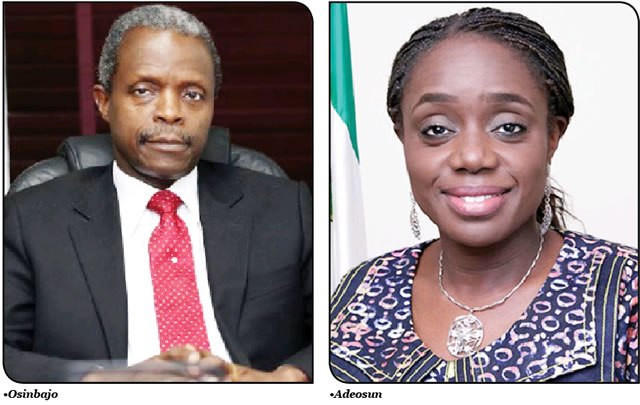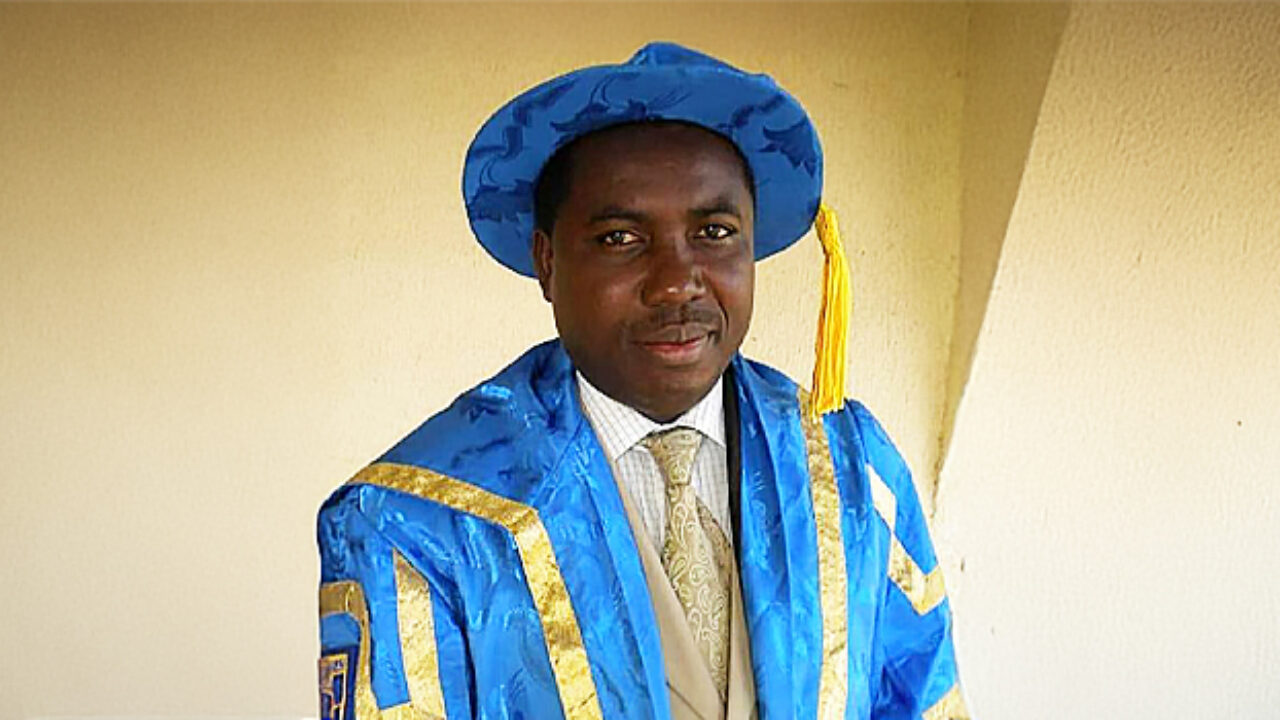The minister of finance, Mrs. Kemi Adeosun has said that the balance in the Excess Crude Account (ECA) as at June 26, 2018 stood at N689, 024, 372, 232.39 ($1,916, 742,289. 60).
Adeosun who disclosed this in Abuja while briefing members of the National Economic Council (NEC) chaired by the vice president, Prof. Yemi Osinbajo also said N291, 160, 000, 000 ($80.6 million) was added to arrived at the N689 billion total.
She also reported that the current balance in the stabilization account as at June 26, 2018 stood at N18, 892,864,216.65 while the balance in the Natural Resources Development Fund as June 28, 2018 stood at N133, 715,427,387.37.
While the NEC appointed a committee of four comprising the governors of Kaduna, Kogi, Ebonyi and Lagos to review the administration and operation of the stabilization fund account, the NEC also received a report from Nigeria Sovereign Investment Authority (NSIA) for the year ended 2016 and update on 2017 activities
NSIA reported fifth straight year of profitability in all its funds with core profits (excluding FX transaction gains) of N26.28 billion ($88 million) for the year.
It also reported that total assets under management was about US$1.25 billion for the most part of the year, as the additional contribution of $250 million was not received until the third quarter of 2017.
Besides, it stated that the return on asset was up to 6.60 per cent in dollar terms adding that “NSIA is shifting focus to infrastructure and direct investments in Nigeria.”
NSIA also reported its 2017 activities which include but not limited to the implementation of the Presidential Fertilizer Initiative (PFI), commencement of construction of first three healthcare projects in Lagos, Kano and Umuahia respectively, continuous work on Second Niger Bridge Projects, investing 13 per cent in Bridge International Academics Ltd – a network of schools which delivers affordable high-quality Primary education to lower-income families, and investing in Babbar-Gona – an agricultural franchise that empowers smallholder farmers.
For 2018, NSIA said it will focus on executing infrastructure investments strategy in its core focus areas of power, toll roads, agriculture and healthcare, in addition to exploring opportunities in other sectors of investment such as refining, transport infrastructure and industrial real estate.
After the presentation, the council approved the account.
For his part, the minister of education, Mallam Adamu Adamu presented the ministerial strategy plan (MSP) (2016 – 2019) for the education sector to the council with focus on out of school children, youth and adult literacy, Science, Technology, Engineering and Mathematics (STEM) and Technology, Vocation Education and Training (TVET), basic education, teacher education, capacity building and professional development, curriculum policy matters, tertiary education, education data and planning, ICT in education and library services.
The presentation highlighted the need for effective collaboration, cooperation and coordination by all stakeholders to consolidate the gains and successfully implement the reforms in the MSP.
It also recognised that more investment is needed in the education sector, while emphasizing that collaboration among the federal, states, local governments, private sector and development partners is very necessary.
The NEC however noted that the standard of basic education at the state level had fallen drastically and resolved that a committee comprising governors of Kano, Osun, Delta, Anambra, CBN governor and the minister should look into what needs to be done urgently in the education sector at the state level and report back to the council.
Thereafter, the minister of communications, Mr. Adebayo Shittu gave an update on the implementation of the National Addressing System (NAS).
Shittu explained that NAS was, among other objectives, set up to facilitate increase of the proportion of Nigerians to be formally assigned street addresses that can be authenticated in local government’s databases where they reside as well as develop a standardised and globally acceptable addressing infrastructure that support easy identification of locations on Geographic Information System (GIS) platform, national development and enhanced socio-economic activities.
He added that the Nigerian National Addressing Standards and Guidelines (NNAS&G) was developed and approved by NAS council in October 2017 in line with the provisions of the policy.
He prayed the council to consider and approve the proposed National Addressing Data Ecosystem Architecture for the implementation of the NAS, consider and accord high priority status for the implementation of the NAS program, as well as support the full implementation of the NAS programmes with adequate funds.
The council approved the prayers and sample of organising address format.



















































